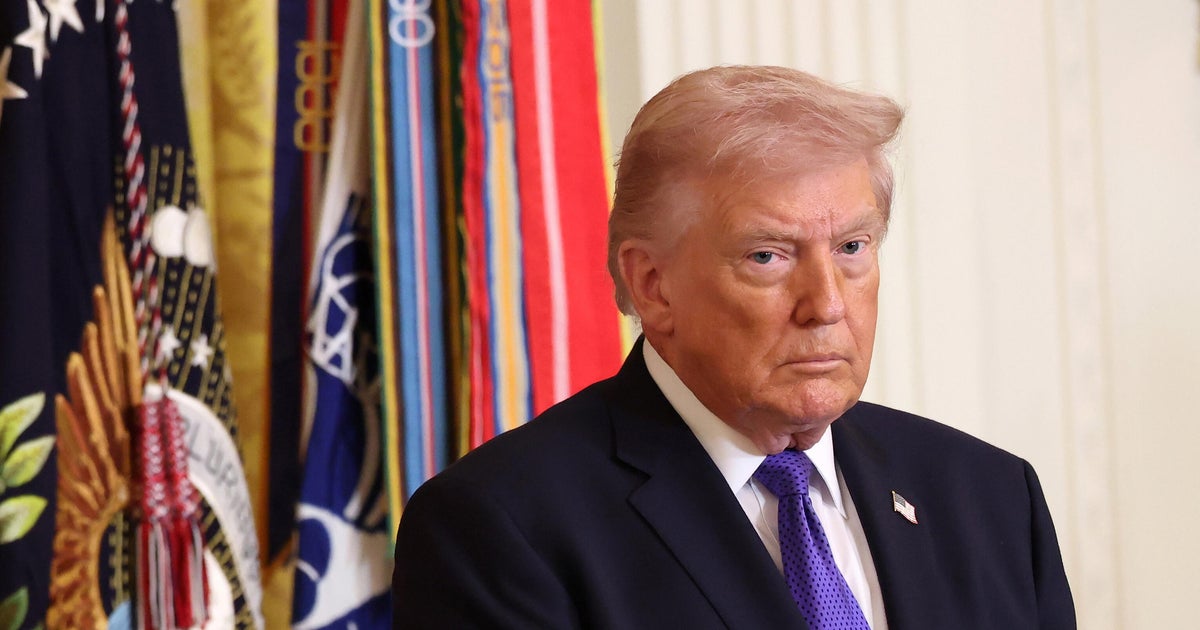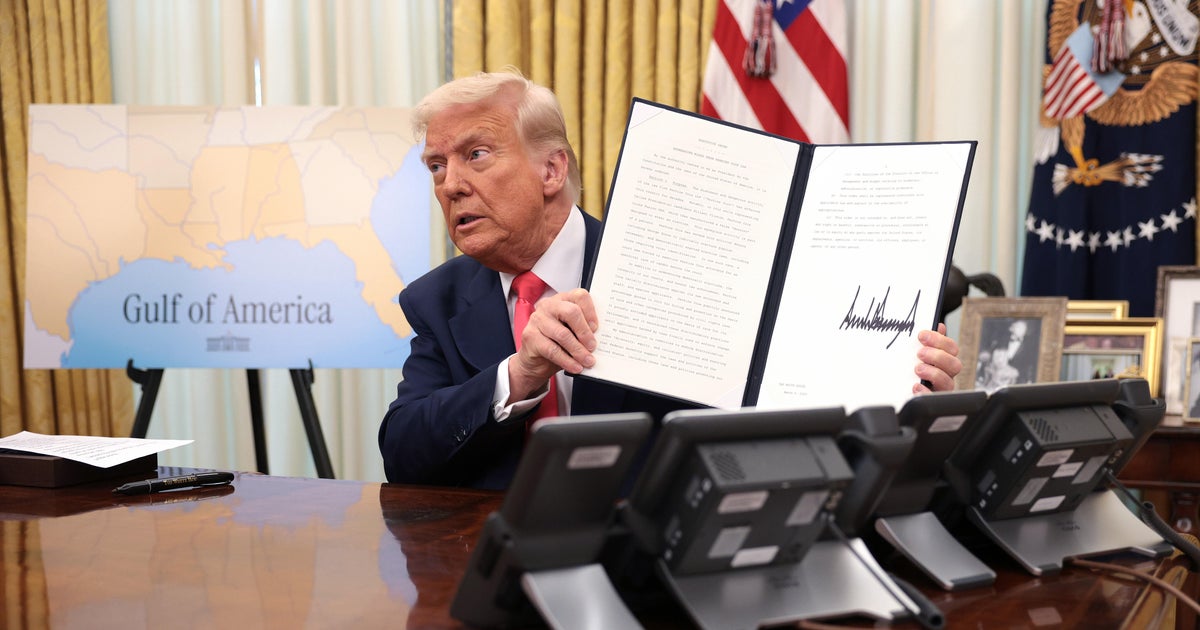Rallies might be on pause, but Trump campaign merchandise churns on
"Look, MAGA Mama t-shirts!" senior Trump campaign adviser Mercedes Schlapp exclaimed, brandishing a campaign branded V-neck tee on a digital campaign livestream Saturday. "Are we a QVC show now? I don't quite know," Schlapp quipped in reference to the flagship televised home shopping network.
"Run the ticker at the bottom so people know where to buy their merchandise," Katrina Pierson, another senior campaign adviser, chimed in.
Ten weeks have passed since President Trump held his last campaign rally. And while he has indicated from behind the White House podium that he "hopes" the show will go on, packed arenas remain on pause while the White House struggles to tighten its own coronavirus testing measures. But even as the president's campaign migrates online indefinitely, one aspect of the Trump campaign brand is booming: merchandise sales.
In these times of coronavirus, President Trump's digital campaign is showcasing a rotating display of branded merchandise catering to life under shutdown: heart-emblazoned wine glasses, Trump-Pence playing cards and a 200-piece, 11'' x 16'' jigsaw puzzle billed in a campaign email as being "first-rate, Made in America (Not China) quality."
Trump virtual events tout "commercial breaks" flush with "shop online" discount codes. Supporters downloading the gamified "Trump 2020" app earn online store rewards just by signing up friends. And if you're one of the thousands of supporters enlisted, you can count on having received no fewer than six emails and two text messages in the past month, reminding you to claim your personalized Trump-Pence doormat — while supplies last.
According to a spokesperson, the Trump campaign sold $4 million in merchandise in March and April alone. According to FEC filings, its single largest campaign expenditure in March was a nearly $1.2 million payment to its supplier — Ace Specialties — for "buttons, stickers, hats, signs, and rally signs." Since the beginning of 2017, the Trump campaign has spent more than $10.5 million on campaign swag.
Louisiana, the home state of the Trump campaign's primary fulfillment center, never closed manufacturing, but it did issue stricter operation guidance during the coronavirus pandemic. That has not stopped production.
Trump "merch" infiltrates digital ads and email fundraising blasts. According to tracking by Bully Pulpit Interactive, the campaign has spent $7.3 million on Facebook advertisements and nearly $4.3 million on Google from the end of February through the beginning of May.
A CBS News review of over 31,000 Facebook advertisements run within the past 30 days found approximately 3,200 — over 10% — pushed viewers to the Trump campaign store. Since April, the campaign has sent over 35 emails to supporters offering a new product or chance to win a photograph autographed by the president.
"Part of the reason the president is selling merchandise is, a) you make some money off of it," said Bully Pulpit Interactive managing director Alex Kellner of the merchandise ads appearing on Facebook. "But when you make a donation and want merchandise, you have to give him your physical address, your name, your phone number."
That turns out to be a lot more than just getting someone to click on an ad about making America great again, which might coax users to give up their names and email addresses, at most.
By comparison, the Biden campaign has not run a single merchandise advertisement in the past 30 days, based on a CBS News review. Like its in-person events, Biden's campaign paused its merchandise operation because of the pandemic.
"We have temporarily suspended order fulfillment for the safety of our printing and fulfillment staff, due to COVID-19," the message on the Biden campaign's online store page has read for several weeks. "Orders may still be placed, and we will ship them as soon as we are able to return to normal operations. We will notify all supporters who place an order at this time by email as soon as normal operations resume."
That message was removed, as of Thursday morning. According to its website, the Biden campaign store is administered by bumperactive.com based out of Austin. In early May, Texas announced non-essential manufacturing facilities would be allowed to begin operating at 25% of total occupancy starting May 18.
"No one is going to bars or restaurants. People are spending their money differently than they were before. So if anything, this would be a perfect time to sell merchandise," Erick Sanchez, former spokesperson for Andrew Yang told CBS News. The political operative who created a line of Dr. Anthony Fauci-themed home goods and apparel, noted progressives are hungry for "signs of resistance" amid the pandemic.
"If you're a supporter and you're pissed off about what's happening now, and you haven't had a chance to donate, you'd want to be wearing a Joe Biden 2020 shirt right now," Sanchez said.
Despite its suspension of merchandise sales, Biden has had little trouble keeping up with fundraising. In April, the campaign announced it along with the Democratic National Committee raised $60.5 million. By comparison, the Trump campaign and Republican National Committee raised $61.7 million.
The commodification of the Trump name isn't new to the longtime businessman who sold steaks, water and airline tickets bearing his name over several decades. You can still purchase Trump wine today. Now, all "Trump 2020" purchases are considered donations to the campaign, allowing ample return on investment for the effort to reelect the president.
In the 2016 cycle, the Trump team spent more than $17.5 million at just two companies on campaign merchandise. But as retailers shift efforts online, the Trump campaign is cashing in, pushing limited-edition puzzles, doormats and other at-home items designed for a country in quarantine.
Ironically, the Trump campaign's ability to turn a profit on merchandising was made possible by Barack Obama's presidential campaign in 2007. That year, the fledgling Obama campaign, low on funds, went to the Federal Election Commission requesting that merchandise be viewed as an incentive for a donation. Prior to that, campaigns were buying gear from a third party vendor, but simply giving it away rather than selling it.
The Obama campaign was able to raise $40 million in the 2008 race on merchandise.
"It was completely shocking," Meaghan Burdick, director of direct marketing for the Obama campaign. "We didn't really know going into it that using them and selling merchandise as opposed to giving it away was necessarily going to be successful."
There have been other surprises too, like which items will be runaway hits. Last July, campaign manager Brad Parscale took his intense dissatisfaction with paper straws to Twitter. That day, sets of plastic straws bearing the Trump name appeared for $15 in the campaign store. Less than a year later, over a million have been sold.
Last week, Parscale tweeted Trump-Pence masks, shown in three colors. The campaign manager modeled the masks at a West Wing meeting Thursday for presidential approval.
While merchandise suppliers for the Trump campaign have been selling masks independently for weeks, the campaign held off amid nationwide PPE shortages. And while campaign rallies have not yet made it back on the president's official schedule, officials say they will be giving away the mass-produced masks ahead of the November election.




